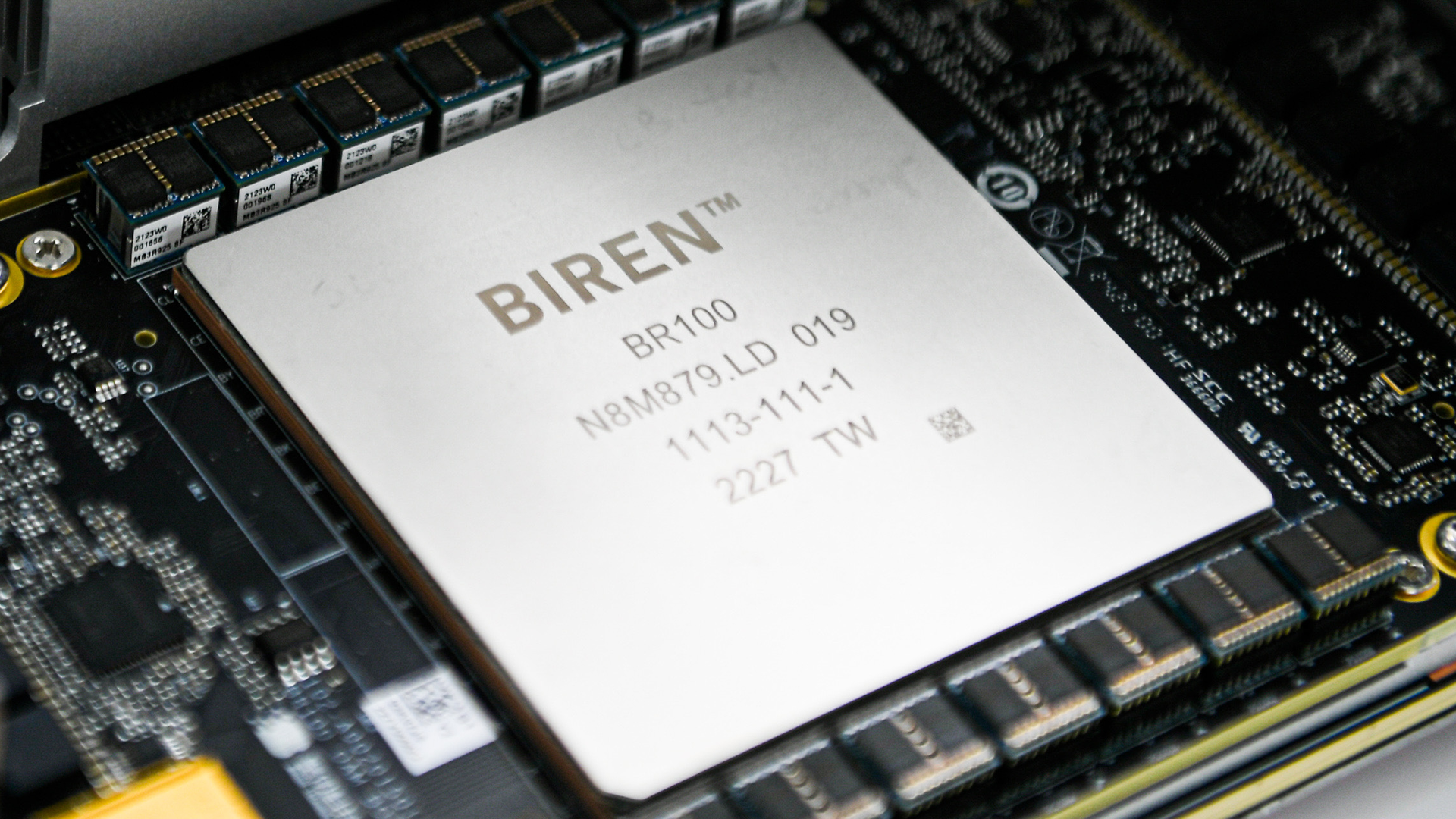China's largest AI GPU maker loses its CEO despite generous government funding — development calls into question China's GPU advances
Biren and Cambricon face challenges due to pressure from the U.S. government.

The once promising Chinese AI process industry is facing tough times. Biren Technology and Cambricon, two big names in the sector, are struggling. Xu Lingjie, chief executive and a co-founder of Biren, recently resigned, which raises concerns about the company's future. Cambricon is bleeding money and has to lay off staff, reports DigiTimes.
Xu Lingjie, a co-founder of Biren, has worked at big tech companies like Nvidia, AMD, and Samsung Electronics' North American Research Institute, so he has a very a solid background. His skills in GPU development have been instrumental for Biren's first generation of chips and it remains to be seen whether the company can develop another breed of its AI processors.
Meanwhile, being blacklisted by the U.S. government, means that Biren does not have access to TSMC's advanced process technologies. Instead it has to rely on Chinese foundries that are years behind those of TSMC, which makes Biren's products less competitive and in many cases irrelevant. Although Biren recently received a $280 million cash infusion from the Guangzhou government-backed investors, it looks like even its co-founders do not believe that the company will be a success.
Biren is certainly among the more competitive Chinese developers of artificial intelligence and compute GPUs. The company's The baseline BR104 with 32 GB HBM2E memory offers performance of up to 128 FP32 TFLOPS or 1 INT8 PetaFLOPS. Whereas the higher-end BR100 with 64 GB HBM2E memory — which is basically two BR104s on one silicon interposer — offers up to 256 FP32 TFLOPS or 2 INT8 PetaFLOPS. Good enough to compete with Nvidia's A100 and H100.
Cambricon has been in the red for seven years straight, and its market value almost halved after it went public. Its problems got worse when Huawei, a major client, started designing its own AI processors, cutting off Cambricon. Add to this internal issues like layoffs, and it becomes clear that Cambricon is struggling to keep up in the competitive AI chip market.
The situation with Biren and Cambricon shows the broader challenges in China's AI chip industry. Initial success and innovation are one thing, but keeping up growth and staying competitive is another. Biren and Cambricon are not the only AI GPU developers in China, but their struggles reflects struggles of the whole Chinese AI hardware in general. It now remains to be seen whether these companies (and other AI hardware developers from China) can adapt, stay financially sound, and keep up with fast-changing market trends.
Get Tom's Hardware's best news and in-depth reviews, straight to your inbox.

Anton Shilov is a contributing writer at Tom’s Hardware. Over the past couple of decades, he has covered everything from CPUs and GPUs to supercomputers and from modern process technologies and latest fab tools to high-tech industry trends.